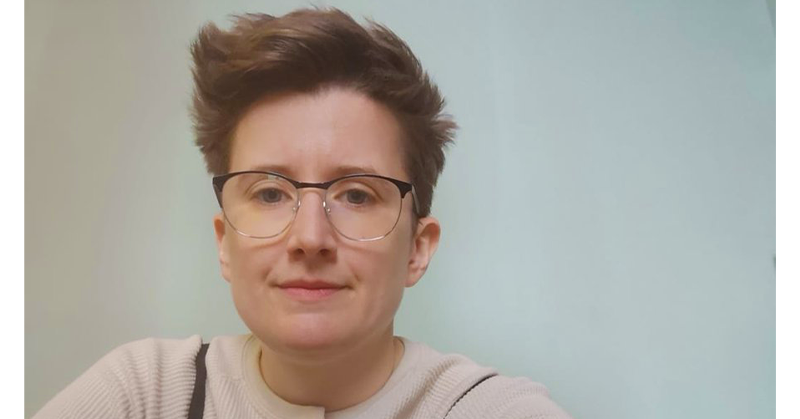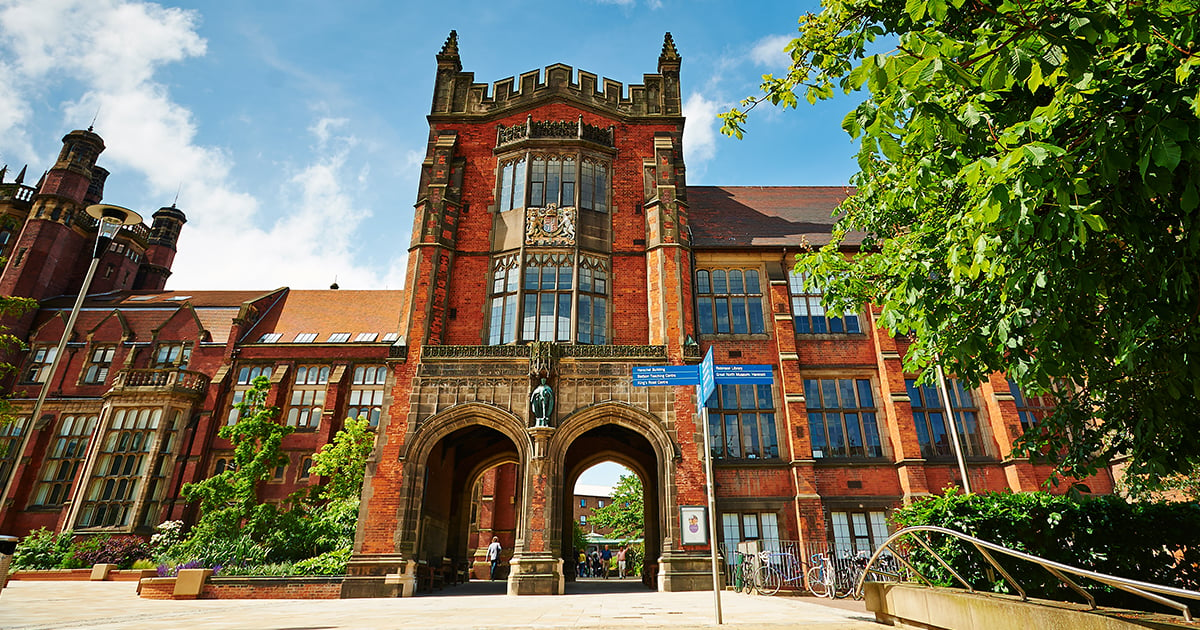5 minutes with Jay Wallace, Hate Crime & Sexual Violence Prevention Lead
Published: 15 April 2021 | Updated: 16 April 2021 | By: Newcastle University | 3 min read
Jay Wallace has recently joined Newcastle University as a Hate Crime and Sexual Violence Prevention Lead in the Health and Wellbeing Team.
We caught up with them to find out more about their plans for the role and to discover what support is available to students and staff who may be affected by these issues.
What’s your role at the University and when did you join?
I’m the Hate Crime and Sexual Violence Prevention Lead in the Student Health and Wellbeing Service (SHWS). The post was newly created in November 2020, which is when I joined the University.
What attracted to you to this role?
I worked as a Graduate Teaching Assistant when I was studying towards my PhD, and I often felt frustrated by the inequalities I saw in Higher Education. When I saw the post advertised I realised that it would be a good opportunity to return to Higher Education in a role that had potential to bring about change.
What positive change will a role like this bring to the University’s community?
Ultimately, the role aims to eliminate hate crime and sexual violence for all members of the University community.
The four main elements of this work are safeguarding, awareness raising, prevention, and support – all of which are at the core of this role. I hope that the existence of the role will continue to signal that hate crime and sexual violence will not be tolerated at the University, and that we have a genuine commitment to eliminating these issues.
What motivates you to work in this field? Tell us about your career and experiences so far
I’m motivated, in large, by my experience of parenting a child in a world that does not value and celebrate difference.
As a non-binary lesbian, I have experienced a significant amount of hateful and discriminatory behaviour. I’m also acutely aware of the discrimination and hate that people from Black and minority ethnicities, disabled people, transgender people, people of faith, and people who have other protected characteristics are subjected to.
That is not the kind of world I want to leave to my child, and I have naturally gravitated towards roles that allow me to contribute to meaningful change.
Before I joined the University, I worked in the charity sector managing services that support women who have been sexually exploited and/or had been chronically excluded from mainstream support services.
This work followed on from my PhD research which looked at LGBTQ+ community practice in the Kansai region of Japan. Along the way, I’ve been fortunate to meet people who have empowered me to develop a career that sits well with my values, and I’m privileged to have found myself working in a field that allows me to continually grow.
What are you looking forward to in this role? And why is it so important?
Joining the University during the Covid-19 pandemic has meant that much of my work so far has been conducted from home. I’m looking forward to being able to get back on campus meeting people face-to-face.
An important part of awareness-raising and support is community development work, and I enjoy this most when I’m able to meet directly with colleagues and students. This type of interaction is important because it helps demystify the reporting process and demonstrates that there are specially trained colleagues in the University who students can reach out to.
If colleagues are interested in hearing more about potential community engagement activities, they should contact svlo@newcastle.ac.uk.
What support is available to students?
Students can report hate crimes, hate incidents, and sexual violence through our Report and Support tool..
We have a broad definition of hate crime, hate incidents, and sexual violence which includes, but is not limited to, physical violence, verbal abuse, harassment, bullying, microaggressions, and any other hate incident directed at a person on the basis of their perceived identity. This means that even if you experience an incident based on a misperception you can still report it and seek help.
We can provide you with a range of support options – including specially trained Sexual Violence Liaison Officers and referrals to outside organisations that provide Hate Crime Advocate support.
You can make a report either anonymously or with your name and contact details. If you choose to report anonymously, we will use the data you provide to inform our prevention activities.
If you click on ‘Speak to an Advisor’ on the Report and Support system we will put you in contact with a colleague who can explain your options and support the decisions you make about your care and support.
We are survivor-led, so we will never pressure you to make an official report to the Police or a complaint to the University. If we have concerns that yourself or others are in imminent serious danger we may take steps to safeguard yourself and others – but we would talk about this with you first.
It can be daunting to make a report using the system, and you may be worried about the impact this might have on you and your studies.
I run a weekly online drop-in for students where you can ask questions about the process in a safe, private space and make an informed decision about your support and care. For more information, please email svlo@newcastle.ac.uk.
What support is available to staff too?
Colleagues can also use the Report and Support tool to report hate crime and sexual violence. Colleague reports are triaged by the People Services team who will explain possible actions and let you know about support that is available through Just Ask, the Employee Assistance Programme and external organisations.
At Newcastle, we do not tolerate hate crime or sexual violence and we aim to eliminate these issues within our community through Jay’s work and the range of support networks we’re establishing with investment in our health and wellbeing provision.
We encourage anyone affected by these issues to seek support. Find out more about the range of support services provided through our Health and Wellbeing teams.
